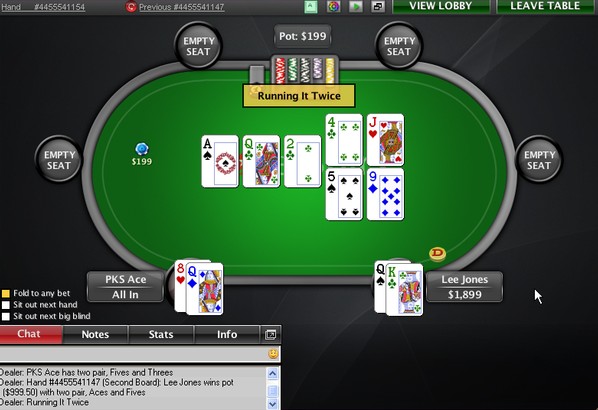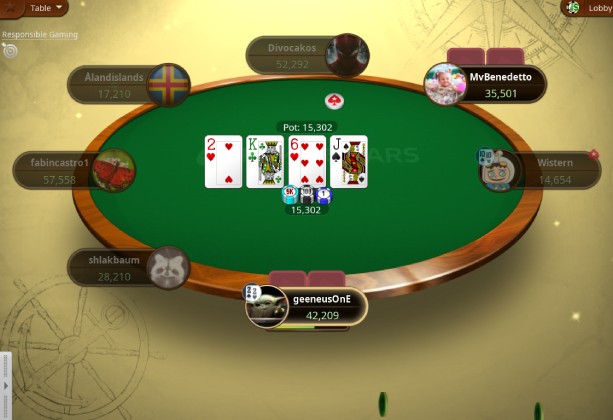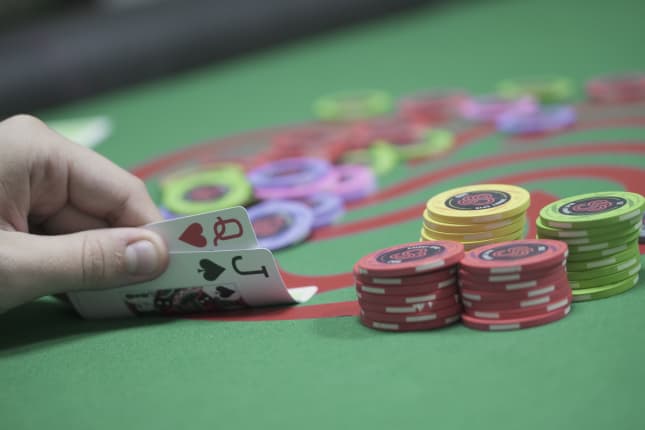Every widely regarded game out there has its own environment, community, and terminology. Poker is no different. It’s easy to learn, and hard to master, and there are a lot of poker terms that can be unintuitive or straight-up incomprehensible for many players.
Most of our readers play poker for fun and aren’t aspiring to the level of poker professionals. Nevertheless, understanding poker terminology helps you grow as a player. We’ll look at some terms worth knowing that you will definitely encounter while playing poker.

Poker terminology for cash game
Let’s start with one of the most common poker games — cash games. Usually, cash game looks the same in every casino, online or actual, but there are a few fancy modifications you may encounter.
Straddle
It is probably one of the most common alternatives to the cash game rules. It’s so popular that it’s almost guaranteed to appear in every poker game you stumble upon. Essentially, a straddle is an additional blind posted by a player on UTG (Under The Gun – the 1st position to act preflop). It’s worth double the big blind (sometimes 2.5x to make the math easier), effectively doubling the stakes.
Straddles get more people to put money into the pot before even seeing the hole cards, which leads to bigger pots and more action when the community cards are dealt. It’s important to remember that the person who posted the straddle closes the pre-flop betting round (just as the big blind is in a regular game).
Typically, the more people straddle at the same poker table the better the game is.
There’s also a twist: some casinos allow to put straddle on the button (usually after all players agreed to that). In that variant, the small blind starts the hand followed by the big blind and the rest of the action goes as usual.
Run it twice
It is an alternative to play out the hand when there is no more betting (i.e. participating players are all in). If players agree to run the hand twice, the remaining community cards are dealt twice (it can be just the river, both turn, and river, or all of the community cards), and the pot is also split into two. The winner of each board gets half of the pot.
Why do people choose to do so? It reduces variance and mitigates the influence single hands have on your overall winning. For example, if you put all the chips in the middle with pocket pair higher than the board and run into a flush draw with some additional outs, you’ll flip for 200 or even more big blinds. It’s a thrill to win such a big pot but it sucks to be on a losing end.
Running the board twice makes it more likely that you’ll split the pot while still making it possible for one player to win on both boards.

Essential terms for poker tournaments (MTTs)
Few things can beat the great feeling of winning a poker tournament that’s why they are so popular. Here are a few terms that every fan of MTTs should know.
Bubble
It’s a period just before reaching the money in the poker tournament. Usually, people on the bubble play more cautiously, as folding may help them cruise to the payouts. At the same time, it’s a perfect opportunity for more experienced players to step up with aggression and pick up some chips left on the table.
On average, the bubble phase in online poker tournaments does not last long. There are often hundreds of players, the hands are played fast, and most of the time the smallest prizes are not so big, so people are not that attached to making it “to the money”.
Things are different for live poker, where the fields are smaller, average buy-ins are bigger, and people are way more “invested” — after all, they had to travel to the poker room, sometimes for hours. That’s why it’s not uncommon for live bubbles to last for as long as an hour. It can be quite challenging for your mental stamina to keep playing your A game so you better be prepared for the specific dynamic bubble brings to every poker table.
ICM
It’s short for Independent Chip Model. ICM is a method that estimates how much your chips are worth regarding other stacks at the table and payouts to be paid. Although the technique is not perfect as it does not consider players’ skill levels and different approaches to the game, it’s pretty good at giving you a rough idea of how much your “tournament life” is worth and what should be your fundamental strategy.
Generally speaking, ICM usually dictates that the more chips you have, the more pressure you should put on the remaining players, especially if there are more short stacks in play and everyone’s waiting for other people to bust.

Deal
Tournament poker rewards winners more than any other poker format. Barring Spin & Go’s, there’s no other poker game in which you can win a few hundred or even thousands of buy-ins throughout one evening.
Given the big fields involved, getting to the final table, let alone winning a poker tournament, is quite an achievement. Most of the money is won by placing in the top 3 spots, while the prize for 1st place can be twice as big as for second place, three times bigger than third place and even twenty times bigger than the payout for placing 9th. Such significant gaps in payouts make tournament poker so exciting yet challenging.
Sometimes, players decide to alter the payouts or chop the money left to be played for (usually with some small amount left to be played for). It’s typical behavior in tournaments with hundreds of thousands of dollars on the line, where getting to the final table is an achievement within itself.
By accepting the deal, players usually agree to distribute the remaining money in a certain way, usually proportionally to the chip stack of every contestant left.

General poker strategy terms
Many poker terms fit into the general strategy category. We won’t cover all of them here. Instead, we’ll focus on a selected few, which are commonly used yet may not be so obvious.
Blocking (or block) bet
It’s a tiny bet compared to the size of the pot, e.g. 1/10th. It usually gives your opponent great pot odds, incentivizing them to call and shy away from raising you.
Blocking bets are usually used on the river when there are no more community cards to be dealt. Used correctly, they are a great addition to your poker arsenal but beware; if you only use them while holding weak hole cards, better opponents will pick up on this and will re-raise you a lot, putting you in tricky spots.
Bluff catcher
It is a term used to describe a hand that beats all of your opponent’s bluffs but is worse than your opponent’s value hands.
For example, if your opponent is betting big on the board with possible straight and flush (therefore, they can have a lot of good hands), a lot of your holdings will be bluff catchers. The vital thing to remember is that your bluff catchers should beat all of your opponent’s reasonable bluffs.
Calling with an ace-high just to be shown a fifth pair is a terrible feeling and can also be a hint that you picked the incorrect hand to call with.
SPR
Stands for the stack-to-pot ratio. It’s the ratio of the chip stack you have to the pot in the middle. Usually, the smaller SPR is, the riskier your plays may be (i.e. you do not need that strong hole cards to go all-in), as you do not risk much relative to the chips already in the middle.
It also works another way around. The bigger the SPR is, the more cautiously you should play.
Down bet
It’s a smaller bet than the one from the previous betting round. Usually, people down bet in 3bet or 4bet pots when the SPR is already low, and it’s easy to get all the money into the pot before the showdown.
Donk bet
It’s a name for a bet made by a player calling in a previous betting round.
Usually, donk betting is seen as a sign of a less experienced player, as generally speaking, the person to put a previous bet is more likely to have a good hand, ergo should keep on betting,
In some scenarios, donk betting is a correct play, but it takes an excellent player to correctly apply the donk betting strategy.
Floating
Floating refers to calling a bet (usually a continuation bet on the flop) without much of a hand, but with a plan to steal the pot on later streets. Applied correctly, floating can be very useful, especially against players who bet every flop no matter what hole cards they have but shut down on later streets without improving.

Exploitative & GTO poker
These are probably the two hottest topics in poker in recent years. Playing exploitatively means you do everything you can to capitalize on your opponents’ mistakes, but at the same time you also deviate from “the optimal way” to play poker.
For instance, your opponent folds to every c-bet unless they hit some decent hand? You can exploit that tendency by c-beting almost every time and making money on their fold.
If, on the other hand, your opponent is betting relentlessly on almost every occasion, it’s likely that, more often than not, they’re bluffing, so you call them with weaker hands than you would against anyone else.
On the other hand, GTO (as in Game Theory Optimal) dictates your optimal plays, meaning in theory you strive to play perfect poker.
According to this approach, you should focus on what is correct from the theory standpoint rather than follow your feelings or beliefs. If you play GTO, you have to study plays based more on board texture and your ranges than who you’re playing against.
GTO strategies are prepared by computer programs, which is why they are so hard to implement yet almost unbeatable.
That’s probably only the tip of an iceberg
Don’t worry, though. Poker terms and the game itself require a lot of time to master, so take it easy. As they say, Rome wasn’t built in a day, and the more you play, the more experienced and familiar with poker terminology you’ll become.
